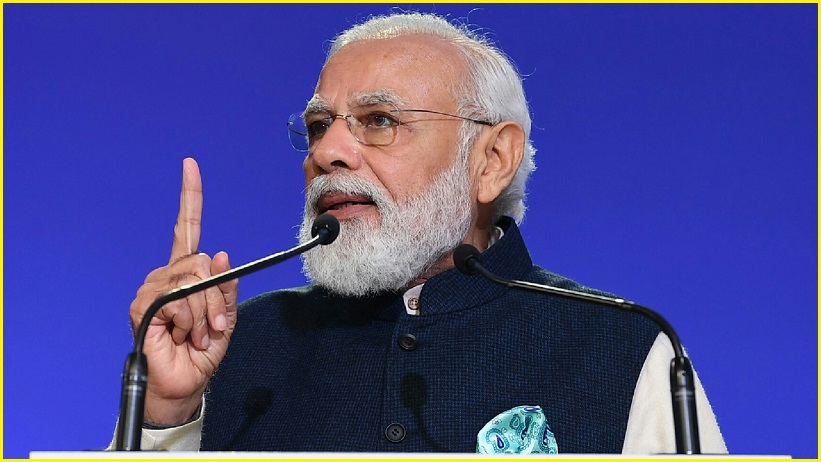Australia, India, and other peace-loving countries must work together to ensure cryptocurrency “does not end up in the wrong hands”, Narendra Modi, Prime Minister of India, has said in warning that peace-loving countries “are at an historic moment of choice” in shaping the legacy of the “wonderful powers of technology of our age”.
“We have always believed in the world as one family,” Modi said in a keynote address to the Australian Strategic Policy Institute’s recent Sydney Dialogue, a gathering of dignitaries from ‘Quad’ member countries including Australia, India, the United States, and Japan.
India had been using strategic investments and policy settings to “use data as a source of empowerment of people”, Modi said, and “we have created a robust framework of data protection, privacy and security… in a democratic framework with strong guarantees of individual rights.”
India has seized upon the challenges of the COVID pandemic to reposition itself as an Indo-Pacific leader in a range of key technologies, reflected in its July decision to donate its CoWin vaccination platform to the world as a free, open-source offering.
“India’s extensive experience with the use of technology and policy for public good, including development and social empowerment, can be a great help to the developing world,” Modi said. “We can work together to empower nations and their people, and prepare them for the opportunities of this century.”
Modi highlighted several key areas where technology-driven investment has supported its mission to democratise information access and build a robust domestic information economy.
These include expanding the country’s public information infrastructure to 600,000 remote villages, the construction of what he called “the world’s most efficient payment infrastructure”, and use of digital technology for governance, inclusion, and empowerment.
India was also fostering one of the world’s largest and fastest-growing startup ecosystems, with innovators in areas like health, education, national security, agriculture and clean energy producing new unicorns “every few weeks”.
Significantly, India is stepping in to fix problematic ongoing shortages of semiconductors, using incentive packages to attract investment in a domestic manufacturing industry that will strengthen sovereign capabilities in areas like space technologies, cloud computing, and quantum computing.
“It is essential for democracies to work together [and] invest together in research and development in future technology,” Modi said, “to develop a trusted manufacturing base and trusted supply chains, to deepen intelligence and operational cooperation on cybersecurity, and to protect critical infrastructure.”
He also flagged tech giants’ increasingly fractious role in shaping public dialogue, warning of the importance of “preventing manipulation of public opinions, developing technical and governance standards and norms consistent with our democratic values, and creating standards and norms for data governance and cross-border flow that protect and secure data.”
That included a consensus on policies around Bitcoin and other cryptocurrencies, Modi said, calling it “important that all democratic nations work together on this and ensure it does not end up in the wrong hands.”
Supporting Australia’s agendas
The call for greater collaboration was welcomed by Australian Prime Minister Scott Morrison, who opened the summit with an address spruiking the benefits of Australia’s controversial AUKUS partnership – of which Quad members India and Japan are not members – as a model for the collaboration that will steer technological growth.
AUKUS, he said, is “a partnership based fundamentally on trust and shared interests, guided by our enduring ideals and shared commitment to an international rules-based order.”
Its real potential, he added, “lies in how the new grouping can be leveraged in the long-term to help Australia deal with the profound technological disruption about to sweep the world” in areas such as cyber security, artificial intelligence, quantum technologies, and additional undersea capabilities.
The Quad partnership would provide similar value, Morrison said, in “working to harness our respective nations’ capabilities to enhance the resilience of the Indo-Pacific supply chain, and to foster an open, accessible and secure technology ecosystem… with an immediate focus on supply chain security for semiconductors and their components.”
“Australians” he said, “recognise instinctively that to remain an open, free, sovereign and prosperous nation, we need strong and durable partnerships now more than ever.”
Modi concurred, warning that working together had become “important for building a future of this world that reflects our democratic ideals and values – which are as important as our own national security and prosperity.”
“We are at an historic moment of choice,” he said, “whether all the wonderful powers of technology of our age will be instruments of cooperation or conflict, coercion or choice, domination or development, operation or opportunity.”
“India, Australia, and our partners in the Indo-Pacific region are prepared to rise to fulfil our responsibilities.”










